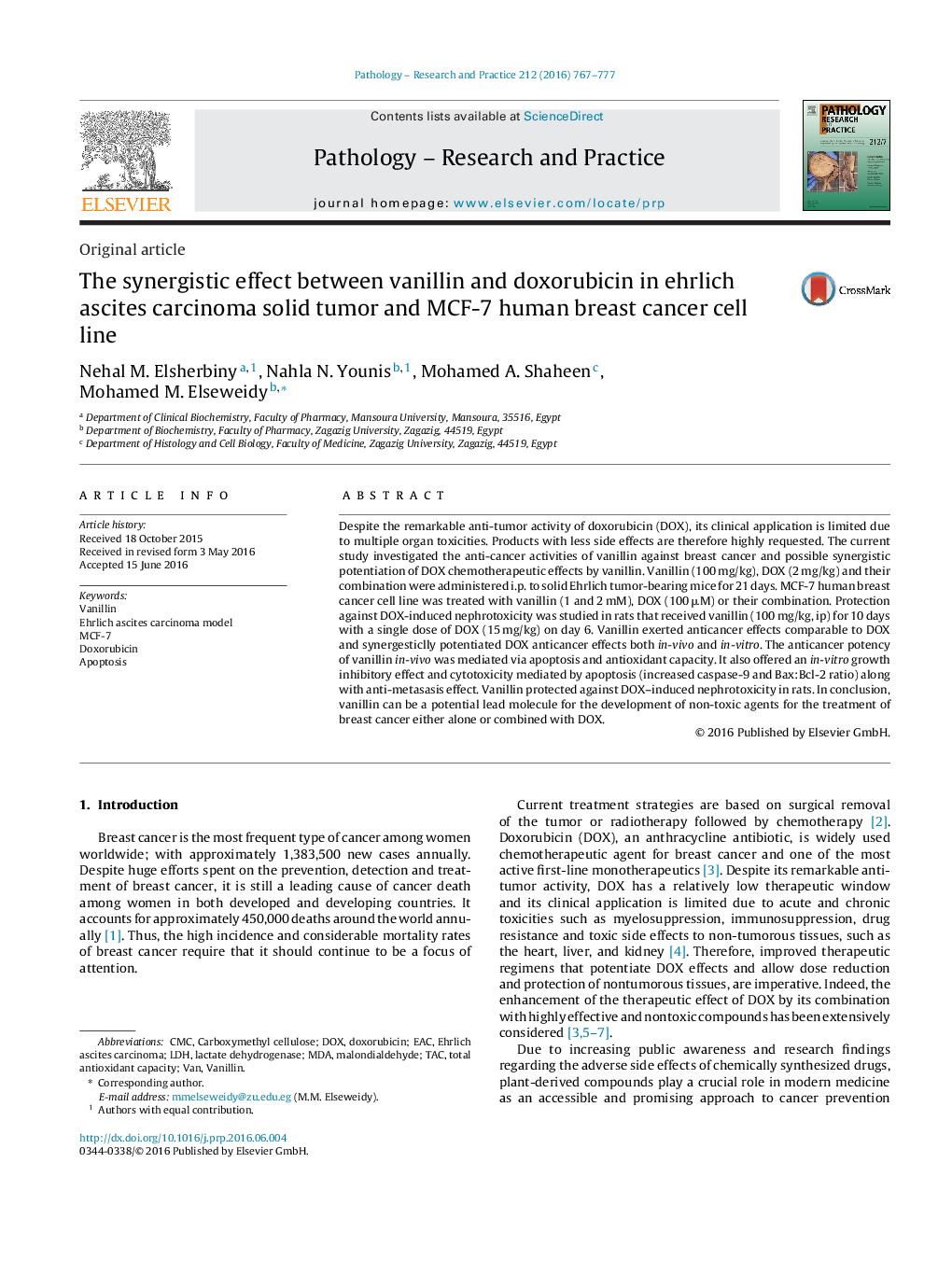| Article ID | Journal | Published Year | Pages | File Type |
|---|---|---|---|---|
| 5529408 | Pathology - Research and Practice | 2016 | 11 Pages |
Despite the remarkable anti-tumor activity of doxorubicin (DOX), its clinical application is limited due to multiple organ toxicities. Products with less side effects are therefore highly requested. The current study investigated the anti-cancer activities of vanillin against breast cancer and possible synergistic potentiation of DOX chemotherapeutic effects by vanillin. Vanillin (100 mg/kg), DOX (2 mg/kg) and their combination were administered i.p. to solid Ehrlich tumor-bearing mice for 21 days. MCF-7 human breast cancer cell line was treated with vanillin (1 and 2 mM), DOX (100 μM) or their combination. Protection against DOX-induced nephrotoxicity was studied in rats that received vanillin (100 mg/kg, ip) for 10 days with a single dose of DOX (15 mg/kg) on day 6. Vanillin exerted anticancer effects comparable to DOX and synergesticlly potentiated DOX anticancer effects both in-vivo and in-vitro. The anticancer potency of vanillin in-vivo was mediated via apoptosis and antioxidant capacity. It also offered an in-vitro growth inhibitory effect and cytotoxicity mediated by apoptosis (increased caspase-9 and Bax:Bcl-2 ratio) along with anti-metasasis effect. Vanillin protected against DOX-induced nephrotoxicity in rats. In conclusion, vanillin can be a potential lead molecule for the development of non-toxic agents for the treatment of breast cancer either alone or combined with DOX.
